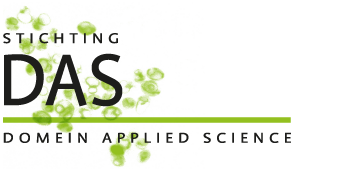The Forensic science programme trains professionals who investigate the facts of a crime
or incident. They help to solve a crime or incident with the aid of scientific, digital, investigation and detection techniques.
Forensic analysts and investigators work in all kinds of professions where the question of cause or guilt must be established. This involves not only crimes, but also incidents such as fire, fraud, accidents, or damage caused by the
failure of products, materials, constructions or human actions. A forensic investigator can therefore work at an ‘incident scene’ or ‘crime scene’, but also in analytical, medical or forensic laboratories. In the legal profession or insurance industry, a forensic investigator will often act as an advisor or policy officer. In addition, forensic investigators make an innovative contribution to the field by developing new methods and techniques and/or applying existing techniques in a different context (forensic engineering). In all cases, forensic investigators are able to use their knowledge of natural sciences, investigative techniques and technology to help establish the circumstances of a crime or incident and who is (or is not) responsible for it.
Occupations, positions and roles of the Bachelor can be found in the following professional domains. The professional
field can be defined in ‘classic’ FS professions, in which forensic investigation plays a key part. Growth in the field of forensic engineering is particularly rapid. Since a detailed definition of the posts in which forensic investigators work would lead to too narrow a definition of the developing professional field, we are not attempting to do so for the time being.
National Educatiol Programme

Body of Knowledge & Skills
Knowledge
Biology
- Cell biology: structure and functioning of micro-organisms and cells, metabolism, biomolecules
- Molecular biology: DNA, heredity, DNA sampling and analysis, operating DNA databases
- Anatomy/physiology/pathology: construction and function of skeleton, skin and organ systems, blood, hormone
system, consequences of injuries, autopsy - Entomology: decomposition phases, succession of species on human remains
Chemistry
- Basic chemistry: atomic engineering, reaction equations, chemical calculations, reactions in water, kinetics,
chemical equilibrium - Analytical chemistry: sample preparation, spectroscopy, chromatography, gunshot residue analysis techniques
- Organic chemistry: nomenclature, functional groups, reaction mechanisms, narcotics
- Toxicology: pharmacokinetics and toxins
- Fire and explosion: chemistry and physics of fire, fire accelerators, flammability limits, reaction heat
Physics
- Mechanics: laws of motion, braking, collision and deformation
- Strength of materials: strength, moment, load
- Ballistics: determination of range and position, comparative examination of cartridges and projectiles
- Optics: light, imaging, image analysis
- Materials science: strength, fracture, deformation
- Heat transfer: conduction, convection, radiation
Informatics
- Computer forensics, data management, networking, internet forensics, cybersecurity, cybercrime
Statistics
- Data processing, normal distribution, confidence intervals, testing
- Using statistics/calculation of probability when determining evidential value
- Determining the evidential value of DNA analyses (Bayesian statistics)
Legislation
- Principles of Dutch law, criminal proceedings, criminal evidence law and substantiation requirements
- Lawfulness and reliability of the evidence-gathering process (e.g. expert witness in criminal cases)
Skills
- Research skills and systematic approach to problems: problem analysis, preparing research questions / hypotheses / scenarios (including for establishing the truth), desk research, research planning and implementation
- Social and communication skills: empathy, interviewing, collaborating, meeting, written reporting, oral presentation
- Information skills: word processing, spreadsheets, drawing software, presentation techniques, digital information searches and research
- Skills at scene of crime/scene of incident: using an (objective) description to make a sketch and a photographic record, managing the securing of biological, chemical and physical evidence, interpreting it and investigating how it relates to hypotheses / scenarios
- Forensic examination techniques: e.g. dactyloscopy, hair and fibre examination, scratch, impression and shape marks, presumptive tests on biological evidence
- Identifying, securing and interpreting digital evidence
- Bloodstain pattern analysis
- Performing or arranging analyses of traces and/or physical evidence in compliance with standards
- Using standard laboratory equipment: performing simple chemical, physical or biological analyses in a laboratory
The Body of Knowledge and Skills is a summary of graduates’ basic knowledge and basic skills which has been prepared by the HBO-programmes in consultation with the professional field. These are obtained during the first two years of education.
Institutions and professional fields
Institutions offering the programme keyboard_arrow_down
- Amsterdam University of Applied Sciences
- Saxion University of Applied Sciences, Enschede
Professional field alignment keyboard_arrow_down
Occupations, jobs and roles for graduates are mostly to be found in the following professional domains. A few examples are given for each domain.
Research and development
- Forensic (digital) specialist, (research) analyst or digital investigator (with the National Police,
ECFO, the NFI or, for example, the NVWA)
Analytical laboratorium and production
- Forensic crime scene investigator (operational specialist) (with the National Police)
- Research analyst (chemical or biological) in the lab (for example NFI of Sanguin)
Engineering and proces technology
- Forensic engineer, fire investigator or failure analyst (at various engineering firms)
Commercial and services sector
- Private investigator, commercial advisor or investigator (with insurance companies, in the
legal profession or for one of the Dutch security regions)
Typical course books keyboard_arrow_down
- An Introduction to Forensic Genetics, W. Goodwin, A. Linacre e.a.
- Essential Forensic Biology, A. Gunn
- Forensic Chemistry, S. Bell
- Fundamentals of General, Organic, and Biological Chemistry, J.E. McMurry, D.S. Ballantine
- Principles of Forensic Toxicology, B.S. Levine, S. Karrigan
- Shooting Incident Recontruction, M.G. Haag
- Forensic Science, A.R.W. Jackson, J.M. Jackson
- Introductory Statistics For Forensic Scientists, D. Lucy
- Seeley’s Essentials of Anatomy and Physiology, C. Vanputte, J. Regan e.a.
The list of typical textbooks serves as an illustration to give an impression of the level at which the subject is taught in the study programme.
